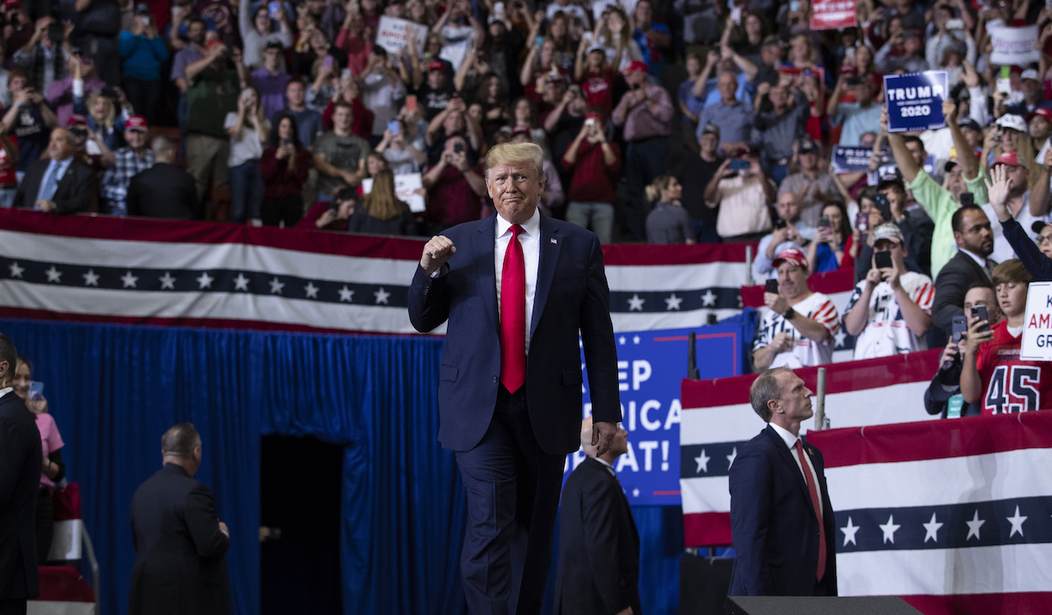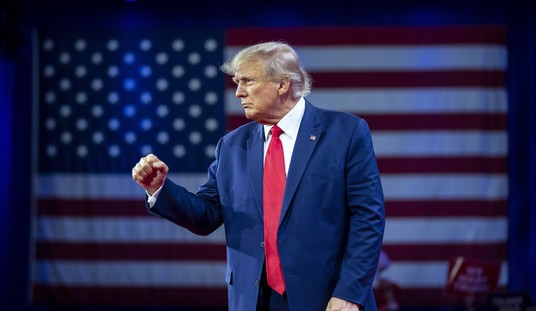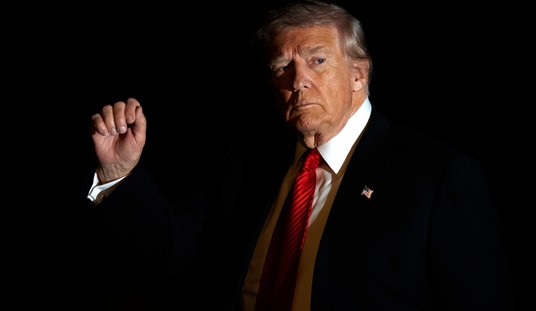It’s not quite true that “they’ve been trying to impeach him since before he was sworn in,” as Trumpers are prone to say lately.
But it’s not entirely false either.
Too bad ABC didn’t drill down a bit to ask people when exactly they first concluded that Trump had committed offenses sufficient to warrant removal from office. Most would cite the Mueller report, I assume, but Trump’s critics have so many grievances with him that answers would likely be all over the board. Gotta be at least a few who’d say, “After the Access Hollywood tape,” which was a month before he won the election. And probably a couple who’d say, “When he started talking about illegal immigrants as rapists,” which was … during his announcement speech.
An overwhelming 70% of Americans think President Donald Trump’s request to a foreign leader to investigate his political rival, which sits at the heart of the House of Representatives’ impeachment inquiry, was wrong, a new ABC News/Ipsos poll finds…
[N]early 1 in 3, 32%, say they made up their minds about impeaching the president before the news broke about Trump’s July phone call with Ukrainian President Volodymyr Zelenskiy, in which Trump urged his Ukrainian counterpart to investigate former Vice President Joe Biden and his son, Hunter…
Among Democrats, 41% say they made up their minds about impeachment before Trump’s actions related to Ukraine became public. And 41% of those who support Trump’s impeachment and removal from office say they made up their minds before the matter came to light.
What are the odds that the share of Democrats whose minds are already made up happens to be precisely the same as the share of those who support removing him from office? Something to bear in mind amid the media chatter about how Republicans have prejudged the Ukraine business in Trump’s favor, which is true but incomplete, shall we say, in capturing the extent of partisan prejudices here. Especially when you consider how strong the social desirability bias must be in polls like this one against admitting that you made up your mind before you even heard the news. People like to believe that they’re fully rational actors, and that in a quasi-judicial matter like impeachment their opinion is based squarely on the evidence. Not this time. Two-fifths of Democrats are happy to tell you upfront that they don’t need to hear a word about Ukraine to know whether Trump needs to go or not.
Impeachment news is in a holding pattern as I write this at 4:45 p.m. ET since so many key witnesses, Gordon Sondland foremost among them, are set to testify in the next few days. But two stories from the last 48 hours are worth flagging as an insight into how early the White House’s interest in the Burisma probe might have begun. One came on Saturday from CNN, reporting on alleged conversations at last year’s White House Hanukkah party between Trump, Giuliani, and Rudy’s now-indicted cronies Lev Parnas and Igor Fruman:
At one point during the party that night, Parnas and Fruman slipped out of a large reception room packed with hundreds of Trump donors to have a private meeting with the President and Giuliani, according to two acquaintances in whom Parnas confided right after the meeting…
Eventually, according to what Parnas told his confidants, the topic turned to Ukraine that night. According to those two confidants, Parnas said that “the big guy,” as he sometimes referred to the President in conversation, talked about tasking him and Fruman with what Parnas described as “a secret mission” to pressure the Ukrainian government to investigate Joe Biden and his son Hunter.
In the days immediately following the meeting, Parnas insinuated to the two people he confided in that he clearly believed he’d been given a special assignment by the President; like some sort of “James Bond mission,” according to one of the people.
Parnas has been talking to House investigators on impeachment, no doubt hoping that cooperating will get him a lighter criminal sentence. If what’s alleged in the excerpt is true, he would enjoy a rare distinction among the many Dem witnesses against Trump: Apart from Gordon Sondland, he’d be the only person who heard directly from the president’s own lips what his intentions were towards the Bidens and Ukraine. All of the other testimony can and will be dismissed by Republicans as secondhand blather which, at worst, proves only that Rudy Giuliani might have “gone rogue” in his zealousness to make himself useful to the president in the Burisma and CrowdStrike matters. Parnas’s testimony could complicate that. All he’d need to say is that Trump made a remark about how worried he was about Biden winning in 2020 and how Ukraine’s information might be important in preventing that and suddenly Dems would have firsthand evidence of the “corrupt intent” they’re aiming to prove as the motive behind the quid pro quo.
Although, in light of his indictment, Parnas would be dismissed as a sleazeball who’s lying about Trump to try to swing a deal for himself and therefore can be safely ignored. So once again it would all come down to Sondland — and John Bolton and Mick Mulvaney, assuming they ever testify. Bolton really might have some stories to tell, as his lawyer had previously suggested.
The other story of note comes from the AP:
In early May, staff at the U.S. Embassy in Kyiv, including then-Ambassador Marie Yovanovitch, were briefed on a meeting Zelenskiy held in which he sought advice on how to navigate the difficult position he was in, according to two people with knowledge of the briefings.
He was concerned that Trump and associates were pressing him to take action that could affect the 2020 U.S. presidential race, the people said. They spoke only on condition of anonymity because of the diplomatic and political sensitivity of the issue.
The briefings show that U.S. officials knew early that Zelenskiy was feeling pressure to investigate Biden, even though the Ukrainian leader later denied it in a joint news conference with Trump in September.
We already knew that Zelensky and his team in Ukraine were anxious as far back as early May about White House pressure to restart the Burisma probe. Today’s scoop claims that their American counterparts, including Marie Yovanovitch, were aware of that anxiety from the start. It’s the backdrop for all high-level interactions between the two sides going back six months. It’s easy to imagine, then, how Zelensky might have come to assume that military aid to Ukraine was contingent upon reviving the Biden investigation even without Trump explicitly threatening him during their call, and before he became fully aware that the aid had been delayed. Both sides understood what the Americans’ “ask” was and which party had the leverage in the relationship. The question was and is whether Trump’s motive was electoral. That’s where Sondland, and maybe eventually Parnas, come in.









Join the conversation as a VIP Member